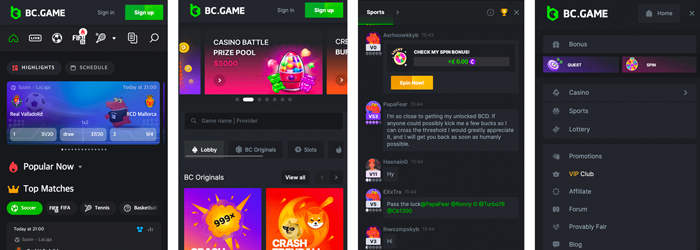2025년 스포츠 토토 사이트 순위 BEST 7 – 배당 높은 실시간 배팅 사이트

스포츠 토토 사이트 순위 BEST 7
2025년을 기준으로 높은 배당, 다양한 실시간 배팅 옵션, 신뢰 높은 합법 라이선스, 다양한 입출금 옵션, 높은 배당률 등 다양한 기준을 통해 안전한 스포츠 배팅 사이트 BEST 7을 선정하였습니다. 실시간 배팅 전략과 초보자를 위한 팁까지 확인해보세요!
1위. 1XBE – 가장 높은 배당을 제공하는 스포츠 토토 사이트

1XBET은 합법적인 운영을 위한 라이선스를 보유하고 있으며 바르셀로나 공식 스폰서로 이미 전 세계적으로 인기 있는 온라인 배팅 플랫폼입니다.
원엑스벳은 축구, 농구, e스포츠 등 다양한 스포츠의 경기전, 라이브 배팅을 지원하고 이와 더불어 라이브 카지노, 슬롯 같은 게임을 제공합니다.
원엑스벳은 가장 많은 스포츠 경기 토토 옵션을 제공하고 있으며 오즈포탈 기준 가장 높은 배당률과 광범위한 결제 수단(KRW 계좌이체, 암호화폐 포함), 다국어 지원, 빠른 입출금 시스템이 강점이입니다.
프로모션 코드 R2GO 입력 후 가입 시 최대 600000 KRW의 보너스를 받아 스포츠 배팅에 활용하실 수 있습니다.
한국에서 스포츠 토토 사이트를 찾으신다면 가장 토토 배당이 높은 1XBET을 추천드립니다.
장점
- 다양한 프로모션
- 세계적인 명성
- 빠른 입출금
- 계좌이체 및 암호화폐 입출금 지원
단점
- 초보자에게는 인터페이스가 다소 복잡할 수 있음
- 특정 국가에서의 제한적인 서비스
2위. WEGO88 – 한국에서 가장 인기있는 토토 플랫폼 제공 사이트

2위는 WEGO88입니다. 위고88 역시 합법적인 운영을 위한 라이선스를 보유하고 있으며 아시아 지역에서 인기를 얻고 있는 스포츠 토토 및 온라인 베팅 플랫폼입니다.
위고88은 현재 CEZA 라이센스를 지닌 내기회사에서 가장 좋은 평판의 마권 1위업체로 세계적인 스포츠 배팅 플랫폼인 SBOBET 포함 3개의 스포츠 배팅 플랫폼을 제공하고 있습니다.
이에 따라 축구, 농구, e스포츠 등 인기 종목 스포츠 배팅에서 가장 다양한 배당률을 확인해보실 수 있으며 모두 실시간 배팅과 다양한 토토 옵션을 제공합니다.
WEGO88은 KRW 원화, 암호화폐 입출금 지원, 24/7 실시간 한국인 고객센터 운영으로 보다 편하고 쉽게 이용하실 수 있으며 가장 많은 보너스 프로모션을 제공하고 있습니다.
안전성과 고객센터의 편리함이 무엇보다 중요하시다면 해외 유일 한국인 고객센터를 운영중인 WEGO88을 추천드립니다.
장점
- SBOBET을 포함한 대형 배팅 플랫폼 3사 제공
- 배팅 재제 없음
- 아시아에서 가장 이용 편리한 해외 사이트
- 원화 입출금 가능
단점
- 적은 다국어 제공 언어
- 전용 앱이 지원되지 않음
3위. 1WIN – 가장 많은 보너스율을 제공하는 스포츠 토토 사이트

3위는 1WIN입니다. 원윈은 최근들어 전 한국을 포함하여 세계적으로 뜨거운 사랑을 받고 있는 스포츠 배팅 사이트입니다.
1WIN 역시 합법 도박 라이선스를 보유하고 있어 이용자 보호 정책을 보장합니다.
1WIN의 가장 큰 장점은 바로 500%의 입금 보너스 입니다.
관련하여 자세한 보너스 코드와 이용방법은 공식 사이트의 1WIN 보너스 코드와 보너스 사용법을 참고해주시길 바랍니다.
카지노 이용이 주력이시고 보너스와 혜택이 가장 중요하신분이시라면 1WIN을 가장 추천 드립니다.
장점
- 신규를 위한 최고의 프로모션
- 500%의 높은 입금 보너스
- 정품 에볼루션 카지노 제공
- 품질 높은 앱 지원
- KRW 원화 및 암호화폐 입출금 지원
단점
- 카지노 주력 사이트
- 번역기 상담원
4위. Dafabet – 가장 오래된 스포츠 토토 사이트!

4위는 Dafabet입닌다. 다파벳은 아시아를 중심으로 글로벌 시장에서도 잘 알려진 스포츠 베팅 플랫폼으로, 라이선스를 보유하고 있어 합법적으로 운영됩니다.
축구, 테니스, e스포츠를 포함한 다양한 스포츠 베팅 시장을 제공하며, 특히 프리미어리그 축구팀과의 스폰서십으로 신뢰성을 강화하고 있습니다.
뿐만아니라 실시간 베팅, 높은 배당률, 다양한 카지노 옵션이 주요 특징입니다.
Dafabet은 암호화폐를 포함한 다양한 결제 수단과 24/7 고객 지원을 제공하여 사용자 만족도를 높이고 있습니다.
긴 운영 노하우를 중요시하신다면 가장 오랫동안 운영되고 있는 Dafabet을 가장 추천 드립니다.
장점
- 공식 라이선스 보유
- 다양한 스포츠 & 카지노 게임
- 한국어 사이트 & 지원
단점
- 낮선 UI / UX 디자인
- 번역기 상담원
5위. BCGAME – 암호화폐 주력 스포츠 토토 사이트

5위는 BC Game 입니다. 비씨게임은 암호화폐 기반의 스포츠 토토 플랫폼으로, 축구·야구·e스포츠 등 다양한 종목에 실시간 베팅이 가능합니다.
직관적인 UI와 빠른 배당 반영이 강점이며, 암호화폐에 익숙한 사용자에게 적합한 사이트입니다.
또한 BCGAME은 암호화폐 뿐만 아니라 국내 은행의 한국 원화(KRW) 입출금 서비스를 포함하여 제공하고 있습니다.
KRW원화도 이용하지만 암호화폐를 주로 이용하신다면 BCGAME을 추천드립니다.
장점
- 암호화폐 특화 플랫폼
- 풍부한 자체 게임 + 인기 슬롯
- 보너스 & VIP 혜택 다양
- 현대적인 UI/UX
- KRW 원화 및 암호화폐 입출금 지원
단점
- 간헐적 불안정 네트워크
- 번역기 상담원
6위. Stake – 암호화폐 기반의 글로벌 베팅 플랫폼

6위는 세계적으로 유명한 랩퍼인 드레이크와 제휴를 맺은 Stake입니다.
암호화폐 기반의 글로벌 베팅 플랫폼으로, 스포츠 토토와 카지노 게임 모두를 지원하는 하이브리드 사이트입니다.
축구, 야구, UFC, e스포츠 등 다양한 종목에 빠른 배당과 실시간 베팅이 가능하며, UI도 깔끔하고 반응 속도가 빠릅니다.
암호화폐를 주로 이용하신다면 Stake를 추천드립니다.
장점
- 암호화폐 특화 플랫폼
- 유명 인플루언서/셀럽 마케팅
- 현대적인 UI/UX
단점
- 번역기 상담원
7위. 22BET – 글로벌 스포츠 베팅 & 온라인 카지노 사이트

마지막 7위는 22BET입니다. 22벳은 키프로스에 본사를 두고 있으며, 큐라소(Curaçao) 라이선스를 기반으로 운영되는 글로벌 스포츠 베팅 & 온라인 카지노 사이트입니다.
온라인 도박이 합법화된 여러 나라의 플레이어들에게 가장 잘 알려지고 명성이 높은 온라인 카지노 사이트로써 많은 이용자층을 확보하고 있고 현재 한국어 인터페이스도 지원됩니다.
장점
- 한국어 완전 지원
- 다양한 스포츠 & 베팅 옵션
- 높은 배당 & 빠른 정산
단점
- 간헐적인 접속 차단
- 번역기 상담원
- 사이트 레이아웃 혼잡
스포츠 토토 사이트 선정 기준 4가지

1. 합법 라이선스 보유
스포츠 토토 사이트를 선택할 때 가장 중요한 기준은 합법적인 라이선스를 보유하고 있는지 확인하는 것입니다. 합법 라이선스는 해당 플랫폼이 규제 기관의 감독하에 운영되며, 사용자 데이터를 안전하게 관리하고 공정한 베팅 환경을 제공한다는 것을 보증합니다. 라이선스를 보유한 사이트는 규정 준수를 통해 사기나 불법 행위를 방지하며, 문제가 발생했을 때 사용자가 보호받을 수 있는 법적 장치도 마련되어 있습니다. 이러한 이유로 신뢰할 수 있는 국제 규제 기관(예: MGA, UKGC, Curacao eGaming 등)의 인증을 받은 사이트를 우선적으로 선택하는 것이 중요합니다. 앞서 소개한 사이트는 모두 합법 라이선스를 등록한 배팅 플랫폼입니다.
2. 다양한 스포츠 경기 실시간 배팅
스포츠 토토 사이트의 매력은 제공되는 스포츠 경기와 실시간 베팅 기능에 달려 있습니다. 축구, 농구, 테니스, 야구와 같은 인기 종목은 물론, e스포츠와 가상 스포츠까지 다양한 종목에 베팅할 수 있는 플랫폼은 사용자의 선택 폭을 넓혀줍니다. 특히, 실시간 배팅 기능은 경기 중 상황 변화에 따라 배당률과 베팅 옵션이 실시간으로 업데이트되어 사용자에게 더욱 전략적인 베팅 기회를 제공합니다. 이러한 기능은 스포츠 토토 배터에게 필수적이며 그 중 가장 안전하고 배당 높은 스포츠 토토 사이트를 선정했습니다.
3. 실제 이용자의 리뷰와 평판
실제 사용자 리뷰와 평판은 스포츠 토토 사이트의 신뢰도를 평가하는 데 필수적인 자료입니다. 리뷰 확인을 통해 빠른 입출금 속도, 고객 지원 서비스 품질, 사이트의 안정성 등 플랫폼이 실제로 얼마나 잘 운영되고 있는지를 확인하였으며 특히, 입출금 먹튀 또는 지연이나 고객 지원 응답 지연과 같은 문제가 보고된 적이 있는지 보고되었다면 이는 해결되었는지를 모두 확인했습니다. 만약 이용하고 있는 사이트가 위와 같은 문제가 있다면 해당 사이트를 피하는 것이 좋습니다.
4. 다양한 입출금 옵션
편리하고 다양한 입출금 옵션은 사용자 경험에 직접적인 영향을 미칩니다. 플랫폼이 암호화폐, 전자지갑, 신용카드, 은행 송금 등 다양한 결제 수단을 지원하면 더 많은 사용자가 자신의 상황에 맞는 방법을 선택할 수 있습니다. 또한, 입출금 처리 시간이 빠르고 수수료가 낮은 플랫폼은 사용자 만족도를 크게 높입니다. 특히, 국제적으로 이용 가능한 스포츠 토토 사이트의 경우 지역화된 결제 수단을 지원하여 글로벌 사용자 기반을 확보하는 것도 중요한 요소입니다. 앞서 소개한 합법 라이선스가 등록된 스포츠 토토 사이트는 모두 KRW 원화 계좌이체와 암호화폐, 신용카드 등 다양한 입출금 옵션을 지원하고 있습니다. 이처럼 다양한 입출금 옵션은 사용자 편의를 극대화하며, 신뢰할 수 있는 서비스를 제공하는 데 중요한 기준이 됩니다.
온라인 스포츠 토토 사이트의 장점

1. 편리성과 접근성
온라인 스포츠 토토 사이트의 가장 큰 장점은 언제 어디서나 쉽게 접근할 수 있다는 점입니다. 인터넷만 연결되어 있다면 스마트폰, 태블릿, 컴퓨터 등을 통해 경기에 베팅할 수 있어 기존 오프라인 방식보다 훨씬 편리합니다. 경기 시간에 맞춰 특정 장소를 방문할 필요 없이, 실시간으로 업데이트되는 배당률과 베팅 옵션을 통해 빠르게 참여할 수 있습니다. 이러한 접근성은 바쁜 일상 속에서도 사용자들이 스포츠 토토를 즐길 수 있는 유연성을 제공합니다.
2. 다양한 배팅 옵션과 폭넓은 선택지
온라인 스포츠 토토 사이트는 단순히 경기 결과를 맞추는 베팅에 그치지 않고, 득점자, 코너킥 수, 핸디캡 등 세부적인 베팅 옵션을 제공합니다. 더불어, 축구, 농구, 야구와 같은 전통적인 스포츠뿐 아니라 e스포츠, 가상 스포츠 등 다양한 종목에 걸쳐 베팅을 지원하여 사용자의 선택 폭을 넓힙니다. 이처럼 폭넓은 옵션은 사용자에게 더 많은 전략적 선택 기회를 제공하며, 자신의 관심사와 선호도에 맞춘 맞춤형 베팅 경험을 선사합니다.
3. 보너스와 프로모션 혜택
온라인 스포츠 토토 사이트는 신규 가입자에게 제공되는 웰컴 보너스부터 정기적인 무료 베팅, 캐시백 등 다양한 프로모션을 통해 사용자들에게 추가적인 혜택을 제공합니다. 이러한 혜택은 오프라인에서는 제공되기 어려운 부분으로, 사용자들은 초기 투자 금액을 절감하거나 더 많은 기회를 통해 베팅을 즐길 수 있습니다. 또한, VIP 프로그램이나 로열티 보상 시스템을 통해 꾸준히 활동하는 사용자들에게 특별한 혜택을 제공하며, 장기적인 만족도를 높이는 데 기여합니다.
지원하는 인기 스포츠 경기

위에서 선정된 BEST3 스포츠 토토 사이트에선 다양한 인기 스포츠 경기를 지원하며, 각각의 아래 스포츠 종목에 대해 실시간 라이브배팅과 폭넓은 배팅 옵션을 제공합니다.
1. 축구 (Football)
- 설명: 1XBET에서 가장 인기 있는 종목으로, 전 세계 리그 및 토너먼트를 포함한 방대한 선택지를 제공합니다. 잉글랜드 프리미어리그, UEFA 챔피언스리그, 라리가 등 주요 리그뿐 아니라 지역 대회도 지원됩니다.
- 베팅 옵션: 경기 결과, 핸디캡, 득점자, 코너킥 수, 경기 내 특정 시간대 결과 등 다양한 옵션 제공.
- 장점: 실시간 업데이트와 높은 배당률을 통해 축구 팬들이 전략적으로 베팅할 수 있는 환경을 제공합니다.
2. 농구 (Basketball)
- 설명: NBA, 유로리그, FIBA 대회 등 글로벌 농구 경기에 베팅할 수 있습니다.
- 베팅 옵션: 경기 승리 팀, 점수 차, 특정 쿼터 점수, 선수가 기록할 득점 등.
- 장점: 빠르게 진행되는 경기 특성상 실시간 베팅에서 특히 흥미로운 경험을 제공합니다.
3. 테니스 (Tennis)
- 설명: ATP, WTA, 그랜드슬램 등 세계 주요 테니스 대회를 포함합니다.
- 베팅 옵션: 경기 우승자, 세트별 승리자, 특정 선수의 에이스 수, 더블 폴트 수 등.
- 장점: 1대1 대결이 주를 이루어 분석과 전략을 활용하기 좋습니다.
4. e스포츠 (eSports)
- 설명: Dota 2, League of Legends, CS:GO, Valorant 등 다양한 e스포츠 경기에 대한 베팅을 지원합니다.
- 베팅 옵션: 경기 승리 팀, 특정 라운드 결과, 킬 수, 경기 시간 등.
- 장점: 전 세계적으로 인기를 얻고 있는 e스포츠를 통해 젊은 사용자들의 참여를 이끌어냅니다.
5. 야구 (Baseball)
- 설명: MLB, NPB(일본 프로 야구) 등 국제 야구 대회를 포함합니다.
- 베팅 옵션: 경기 결과, 이닝별 점수, 홈런 기록 여부, 핸디캡 등.
- 장점: 긴 경기 진행 시간 덕분에 실시간 베팅에서 유리한 조건을 활용할 수 있습니다.
6. 격투기 (MMA & Boxing)
- 설명: UFC, Bellator, 주요 복싱 이벤트 등 격투 스포츠를 지원합니다.
- 베팅 옵션: 경기 승리자, KO/TKO 여부, 라운드별 승리 등.
- 장점: 경기의 긴장감과 단시간에 결과가 결정되는 특성상 매우 역동적입니다.
7. 크리켓 (Cricket)
- 설명: IPL(인도 프리미어리그), ICC 월드컵 등 전 세계 크리켓 경기가 포함됩니다.
- 베팅 옵션: 경기 승리 팀, 오버당 점수, 특정 선수의 기록 등.
- 장점: 전통적으로 크리켓을 즐기는 국가들에서 높은 인기를 끌고 있습니다.
스포츠 토토 사이트 자주 묻는 질문 FAQ
Q. 온라인 스포츠 토토 이용은 합법인가요?
A. 온라인 스포츠 토토 사이트의 합법성은 거주 국가의 법률에 따라 다릅니다. 예를 들어, 일부 국가는 국제적으로 운영되는 온라인 배팅 사이트에 접근하는 것을 허용하지만, 특정 국가는 이를 금지하고 있습니다. 따라서 이용 전에 해당 국가의 법률과 규제를 확인하는 것이 중요합니다. 합법 라이선스를 보유한 사이트를 선택하면 보다 안전한 환경에서 서비스를 이용할 수 있습니다.
Q. 실시간 경기 배팅의 전략과 팁이 있을까요?
A. 실시간 경기 배팅에서 성공하려면 다음과 같은 전략이 유용합니다:
- 경기 시작 전 팀과 선수에 대한 충분한 분석을 진행하세요.
- 실시간으로 경기 상황을 주의 깊게 관찰하며 흐름을 파악하세요.
- 배당률 변화에 따라 빠르게 판단하고 전략적으로 베팅하세요.
- 한 번의 베팅에 과도한 금액을 투자하기보다는 소액으로 분산하여 리스크를 줄이는 것이 중요합니다.
Q. 스포츠 토토 사이트에서 보너스는 어떻게 활용하나요?
A. 스포츠 토토 사이트는 신규 가입자 보너스, 캐시백, 무료 베팅 등 다양한 혜택을 제공합니다. 보너스를 활용하려면 해당 사이트의 약관을 먼저 확인하세요. 예를 들어, 보너스 금액에 특정 베팅 금액의 몇 배를 걸어야 하는 ‘롤오버 조건’이 있을 수 있습니다. 이러한 조건을 충족시키는 것이 중요하며, 보너스를 전략적으로 사용하면 추가 자금을 활용해 더 많은 배팅 기회를 얻을 수 있습니다.
Q. 입출금 시 추가 수수료가 발생하나요?
A. 입출금 수수료는 사이트와 사용자가 선택한 결제 수단에 따라 다릅니다. 일부 플랫폼은 특정 결제 수단에 대해 수수료를 면제하지만, 국제 송금이나 암호화폐 거래 시 소정의 수수료가 발생할 수 있습니다. 입출금 전에 수수료 정책을 확인하고, 가장 유리한 결제 옵션을 선택하는 것이 좋습니다.
Q. 초보자가 가장 쉽게 접근할 수 있는 스포츠는 무엇인가요?
A. 초보자에게는 규칙이 간단하고 분석 자료가 풍부한 축구나 농구를 추천합니다. 이러한 종목은 전 세계적으로 인기가 많아 경기 정보와 전문가 분석을 쉽게 찾을 수 있습니다. 처음에는 단순한 경기 결과 예측으로 시작하고, 익숙해지면 세부적인 베팅 옵션을 점차 활용해 보세요.
Q. 스포츠 토토 사이트 이용 중 문제가 발생하면 어떻게 하나요?
A. 문제가 발생하면 가장 먼저 해당 사이트의 고객 지원팀에 문의하세요. 대부분의 신뢰할 수 있는 사이트는 24/7 라이브 채팅, 이메일, 또는 전화를 통해 지원 서비스를 제공합니다. 또한, 문제가 신속히 해결되지 않을 경우, 해당 사이트의 라이선스 발급 기관에 신고하거나, 사용자 리뷰를 통해 다른 해결 방법을 모색할 수 있습니다.
마치며
스포츠 토토 사이트를 선택하는 것은 단순히 배팅 환경을 제공받는 것을 넘어, 사용자에게 안전하고 신뢰할 수 있는 플랫폼을 제공하는지 평가하는 과정입니다. 앞서 소개된 1XBET, WEGO88, 1WIN, Dafabet, BCGAME, Stake, 22BET은 각각의 장점과 특화된 서비스로 다양한 사용자 요구를 충족시킬 수 있는 플랫폼입니다. 특히 합법적인 라이선스 보유, 다양한 스포츠 경기와 실시간 배팅, 실제 이용자 리뷰를 통한 신뢰도, 그리고 편리한 입출금 옵션은 올바른 선택을 위한 필수적인 기준입니다.
스포츠 토토는 단순한 배팅 그 이상으로, 스포츠 경기를 즐기는 새로운 방식과 더불어 전략적 재미를 제공합니다. 무엇보다 안전하고 신뢰할 수 있는 플랫폼에서 즐기는 것이 가장 중요하므로, 앞서 소개된 BEST 3 사이트를 참고하여 자신의 취향과 요구에 맞는 사이트를 선택해 보시길 바랍니다. 올바른 정보를 바탕으로 한 선택은 더 큰 만족과 즐거움을 선사할 것입니다.
가장 배당 높은 스포츠 토토 사이트 1XBET 바로가기 (프로모션 코드: R2GO)


